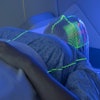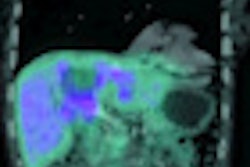Radiation therapy following breast conservation surgery may reduce the risk of requiring a mastectomy in the future for women ages 70 to 74 who are estrogen-positive, say Texas researchers. Results from the study of nearly 7,500 women were published online on August 13 in Cancer.
The study from the University of Texas MD Anderson Cancer Center in Houston may help better quantify the appropriateness of radiotherapy treatment for older women.
The issue of foregoing radiotherapy treatments after breast conservation surgery in women in their 70s with early-stage breast cancer is still being debated. Several recent clinical trials have revealed that women in their 70s and definitely older than 80 years of age may have no greater risk of breast cancer recurrence if they do not receive radiation therapy than those who do (Cancer, August 13, 2012).
One of these trials was the Cancer and Leukemia Group B C9343 (CALGB9343) clinical trial, published in 2004 in the New England Journal of Medicine, which found that at 10-year follow-up, radiation therapy lowered the risk of local recurrence but did not lower the risk of mastectomy or death from breast cancer (NEJM, September 2004, Vol. 351:10, pp. 971-977).
In the current study, the MD Anderson researchers wanted to see if this was also true for a general population of women not enrolled in clinical trials. Lead author Dr. Jeffrey M. Albert, a fourth-year radiation oncology resident, and colleagues used the Surveillance, Epidemiology and End Results (SEER) Medicare database to identify nearly 28,000 women between the ages of 70 to 79 who had breast conservation surgery between 1992 and 2002. From this group, they identified 7,403 women who met the exact entry requirements of the clinical trial.
Their retrospective study revealed that radiotherapy provided no benefit for patients between 75 and 79 years of age without high-grade tumors who had a pathologic lymph node assessment. However, for all other patients, radiotherapy was associated with an absolute reduction in the risk of mastectomy that ranged from 4.3% to 9.8% at 10 years.
Of the 7,403 patients in the MD Anderson cohort, 87.6% had radiotherapy treatments following breast conservation surgery. A total of 174 patients out of the total group subsequently had a mastectomy. The 10-year risk of having a mastectomy was 6.3% for patients who did not receive radiotherapy treatment, compared with 3.2% for patients who did. Among patients who were between 70 and 74 years of age, radiotherapy treatment was associated with a 10-year absolute reduction in mastectomy risk of 3.8%.
Radiotherapy treatment was also associated with a 6.7% absolute reduction for patients in the entire age group who had high-grade breast cancer, and a 4.9% absolute reduction for all patients who underwent a clinical lymph node assessment.
Noting that with the aging of the baby boomer generation and the number of breast cancers diagnosed in older women estimated to increase 57% over the next 20 years, the authors hope that this study will provide additional guidance to elderly breast cancer patients.
"This robust finding has the potential to simplify and improve care for a sizeable group of patients, and also may lead some older women who otherwise would have chosen mastectomy to instead opt for conservation surgery without radiotherapy treatment," they concluded.



















